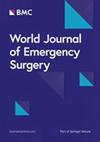How confident are the general surgeons in Hokkaido region in performing essential trauma skills: a cross-sectional questionnaire survey
IF 5.8
1区 医学
Q1 EMERGENCY MEDICINE
引用次数: 0
Abstract
In Japan—particularly in the Hokkaido region—a limited number of dedicated trauma surgeons often compels general surgeons to serve as frontline providers of trauma care. However, their ability to perform critical trauma procedures and their level of confidence remain unclear. Understanding this gap is vital for guiding targeted training programs aimed at improving patient outcomes. Although conducted in one region, these findings may inform strategies in other remote or resource-limited settings worldwide, where timely surgical intervention significantly affects survival. Therefore, the objective of this study was to evaluate the experience and confidence of general surgeons in Hokkaido in performing 35 essential trauma procedures. This prospective observational study surveyed all general surgeons and surgical residents working in hospitals that regularly perform surgical procedures in Hokkaido. Participants provided demographic information, trauma training history, and self-assessed confidence and experience in performing 35 procedures identified via a previous Delphi study. Confidence was defined as a Likert scale rating of 4 or 5. Comparisons were made between respondents with and without advanced trauma training (e.g., ATOM, DSTC) and between those who had managed more than 50 trauma cases versus fewer than 50. Of 730 eligible participants, 444 completed the survey (62.2%). Over half (57.9%) reported fewer than 10 lifetime trauma surgeries, and 64.4% had not managed a trauma case in the past year. Only six procedures were rated confidently (≥ 4) by more than half the respondents, including endotracheal intubation, chest tube placement, and selected gastrointestinal procedures. Subgroup analyses indicated that surgeons generally had higher confidence in procedures related to their subspecialty, whereas less frequent or advanced trauma skills remained areas of concern. Surgeons with advanced trauma training or a higher trauma case volume (> 50) demonstrated significantly greater confidence in multiple trauma-specific skills. General surgeons in Hokkaido lack confidence in most essential trauma procedures, particularly those encountered infrequently. Although these findings originate from one region, they underscore training gaps potentially relevant to other remote or resource-limited areas, where frontline trauma care demands targeted, high-yield interventions to improve outcomes.北海道地区的普通外科医生在执行基本创伤技能方面有多自信:一项横断面问卷调查
在日本,特别是在北海道地区,专业的创伤外科医生数量有限,往往迫使普通外科医生充当创伤护理的一线提供者。然而,他们执行关键创伤手术的能力和他们的信心水平仍不清楚。了解这一差距对于指导旨在改善患者预后的有针对性的培训计划至关重要。虽然在一个地区进行了研究,但这些发现可能为世界上其他偏远或资源有限的地区的策略提供信息,在这些地区,及时的手术干预会显著影响生存率。因此,本研究的目的是评估北海道普通外科医生在35种基本创伤手术中的经验和信心。这项前瞻性观察性研究调查了北海道所有在定期进行外科手术的医院工作的普通外科医生和外科住院医师。参与者提供了人口统计信息、创伤训练史、自我评估的信心和经验,并通过先前的德尔菲研究确定了35种手术。信心被定义为李克特量表评分为4或5。比较了接受过和没有接受过高级创伤培训(例如,ATOM, DSTC)的受访者,以及处理过50多例创伤病例和少于50例创伤病例的受访者。在730名符合条件的参与者中,有444人完成了调查(62.2%)。超过一半(57.9%)的人报告一生中创伤手术少于10次,64.4%的人在过去一年中没有处理过一例创伤病例。只有6种手术被超过一半的受访者自信地评为(≥4),包括气管插管、胸管放置和选定的胃肠道手术。亚组分析表明,外科医生通常对与他们的亚专业相关的手术有更高的信心,而较少的或先进的创伤技能仍然是值得关注的领域。受过高级创伤训练或创伤病例量较高(bbb50)的外科医生在多种创伤特异性技能方面表现出更大的信心。北海道的普通外科医生对大多数基本的创伤手术缺乏信心,尤其是那些不经常遇到的手术。尽管这些发现来自一个地区,但它们强调了培训差距可能与其他偏远或资源有限的地区有关,在这些地区,一线创伤护理需要有针对性的、高收益的干预措施来改善结果。
本文章由计算机程序翻译,如有差异,请以英文原文为准。
求助全文
约1分钟内获得全文
求助全文
来源期刊

World Journal of Emergency Surgery
EMERGENCY MEDICINE-SURGERY
CiteScore
14.50
自引率
5.00%
发文量
60
审稿时长
10 weeks
期刊介绍:
The World Journal of Emergency Surgery is an open access, peer-reviewed journal covering all facets of clinical and basic research in traumatic and non-traumatic emergency surgery and related fields. Topics include emergency surgery, acute care surgery, trauma surgery, intensive care, trauma management, and resuscitation, among others.
 求助内容:
求助内容: 应助结果提醒方式:
应助结果提醒方式:


